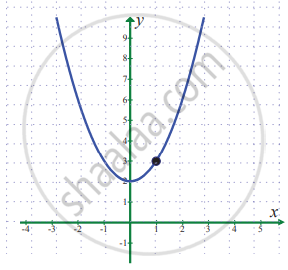Advertisements
Advertisements
प्रश्न
Evaluate the following limits:
`lim_(x -> 0) (tan 2x)/(sin 5x)`
उत्तर
We know `lim_(x -> 0) (sin x)/x` = 1
`lim_(x -> 0) (tan 2x)/(sin 5x) = lim_(x -> 0) (sin 2x)/(cos 2x) xx 1/(sin 5x)`
= `lim_(x -> 0) (sin 2x)/(1/2 (2x)) xx 1/(cos 2x) xx (1/5(5x))/(sin 5x)`
= `2/5 (lim_(2x-> 0) (sin 2x)/(2x)) (lim_(x -> 0) 1/(cos 2x)) xx (1/(lim_(5x -> 0) (sin 5x)/(5x)))`
= `2/5 xx 1 xx 1/cos 0 xx 1/1`
`lim_(x -> 0) (tan 2x)/(sin 5x) = 2/5 xx 1/1 xx 1`
= `2/5`
APPEARS IN
संबंधित प्रश्न
Evaluate the following limit:
`lim_(x -> 2)[(x^(-3) - 2^(-3))/(x - 2)]`
Evaluate the following limit :
`lim_(x -> 0)[(root(3)(1 + x) - sqrt(1 + x))/x]`
Evaluate the following limit :
`lim_(x -> 1) [(x + x^3 + x^5 + ... + x^(2"n" - 1) - "n")/(x - 1)]`
Evaluate the following :
`lim_(x -> 0)[x/(|x| + x^2)]`
In problems 1 – 6, using the table estimate the value of the limit.
`lim_(x -> 2) (x - 2)/(x^2 - x - 2)`
| x | 1.9 | 1.99 | 1.999 | 2.001 | 2.01 | 2.1 |
| f(x) | 0.344820 | 0.33444 | 0.33344 | 0.333222 | 0.33222 | 0.332258 |
In exercise problems 7 – 15, use the graph to find the limits (if it exists). If the limit does not exist, explain why?
`lim_(x -> 1) (x^2 + 2)`
Evaluate : `lim_(x -> 3) (x^2 - 9)/(x - 3)` if it exists by finding `f(3^-)` and `f(3^+)`
Verify the existence of `lim_(x -> 1) f(x)`, where `f(x) = {{:((|x - 1|)/(x - 1)",", "for" x ≠ 1),(0",", "for" x = 1):}`
Evaluate the following limits:
`lim_(x -> 2) (1/x - 1/2)/(x - 2)`
Evaluate the following limits:
`lim_(x -> 0) (sqrt(x^2 + 1) - 1)/(sqrt(x^2 + 16) - 4)`
Evaluate the following limits:
`lim_(x -> oo) (1 + x - 3x^3)/(1 + x^2 +3x^3)`
Evaluate the following limits:
`lim_(x -> oo)(1 + 1/x)^(7x)`
Evaluate the following limits:
`lim_(x -> 0) (sin^3(x/2))/x^2`
Evaluate the following limits:
`lim_(alpha -> 0) (sin(alpha^"n"))/(sin alpha)^"m"`
Evaluate the following limits:
`lim_(x -> 0) (2 "arc"sinx)/(3x)`
Evaluate the following limits:
`lim_(x -> 0) (2^x - 3^x)/x`
Choose the correct alternative:
`lim_(x - pi/2) (2x - pi)/cos x`
Choose the correct alternative:
`lim_(alpha - pi/4) (sin alpha - cos alpha)/(alpha - pi/4)` is
Choose the correct alternative:
`lim_(x -> 0) ("e"^tanx - "e"^x)/(tan x - x)` =
`lim_(x→∞)((x + 7)/(x + 2))^(x + 4)` is ______.
